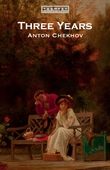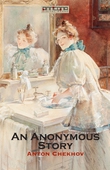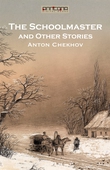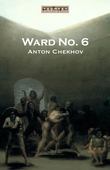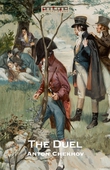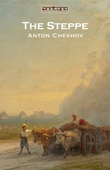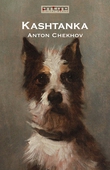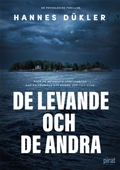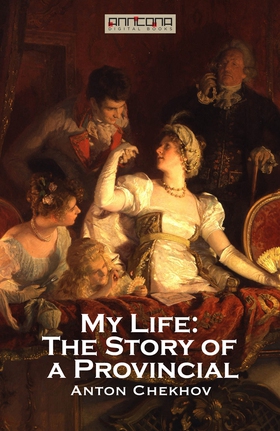
Lägg till önskelistan
My Life: The Story of a Provincial e-bok
Pris
19 kr
My Life: The Story of a Provincial . by Anton Chekhov, was first published in 1896. This English translation was first published as part of the collection The Chorus Girl and Other Stories in 1920.
A provincial youth of wealth and noble status refuses to employ himself in the typical occupations of the higher classes, thus acquiring a reputation as a lazy good-for-nothing. In reality, he is intensely sensitive to the injustices perpetrated by his social class upon the working classes of town...
E-Bok
19 kr
Pris
Ljudbok
65 kr
Pris
Förlag
Anncona Media
Utgiven
27 December 2015
Genrer
Romaner, Skönlitteratur
Språk
English
Format
epub
Kopieringsskydd
Vattenmärkt
ISBN
9789176056035
My Life: The Story of a Provincial . by Anton Chekhov, was first published in 1896. This English translation was first published as part of the collection The Chorus Girl and Other Stories in 1920.
A provincial youth of wealth and noble status refuses to employ himself in the typical occupations of the higher classes, thus acquiring a reputation as a lazy good-for-nothing. In reality, he is intensely sensitive to the injustices perpetrated by his social class upon the working classes of town and country, and resolves to become a common laborer, taking employment as a house painter and ikon gilder.
All classes of society around him respond to this revolutionary action with bewilderment and ridicule, even the lowest workmen feeling threatened by this insolent shaking of the cosmic structure.
Possibly Chekhov's most passionate outcry against the corruption and hypocrisy of every class of conventional society, My Life resonates outrage and frustration of powerful relevance to twenty-first century life.
Anton Pavlovich Chekhov (1860-1904) was a Russian physician, dramatist and author who is considered to be among the greatest writers of short stories in history. His career as a dramatist produced four classics and his best short stories are held in high esteem by writers and critics.
Chekhov had at first written stories only for financial gain, but as his artistic ambition grew, he made formal innovations which have influenced the evolution of the modern short story. His originality consists in an early use of the stream-of-consciousness technique, later adopted by James Joyce and other modernists, combined with a disavowal of the moral finality of traditional story structure. He made no apologies for the difficulties this posed to readers, insisting that the role of an artist was to ask questions, not to answer them.

